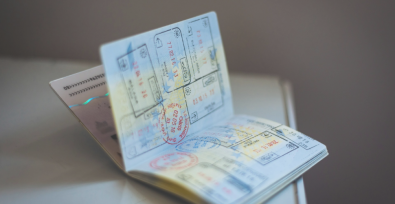After two high-profile federal cases exposed systemic labor exploitation by foreign diplomats working in Australia, the government has put in place new restrictions aimed at curbing abuse. But The Guardian reports a recent visit from The U.N. special rapporteur on contemporary forms of slavery said he still had “serious concerns” about the treatment of all temporary migrant workers in Australia.
“Slave-like working conditions”
Prof Tomoya Obokata, The U.N. special rapporteur on contemporary forms of slavery, just wrapped up a visit to Australia. His visit was sparked by new restrictions by the government on foreign diplomats bringing domestic workers into the country. Two recent court cases underlined growing concerns that foreign domestic workers were facing widespread abuse but were largely invisible due to working in the private homes of foreign diplomats. However, Obokata was quick to point out that these issues didn’t just apply to foreign domestic workers, but all temporary migrant works across the country.
Obokata said:
“I received credible information from a large number of stakeholders, including workers themselves, which clearly reveals disturbing, sometimes very serious, patterns of exploitative practices by employers, labor hire companies and migration agents,”
According to Obokata, the temporary work program in Australia creates a significant power imbalance between employers and workers. The system itself facilitates the abuse. This is due to the fact that it essentially ties workers to a single employer. That leaves them dependent upon that employer for their right to work or even remain in the country. It also leaves them extremely vulnerable to abuse.
U.N. agent’s report a “wake-up call to governments at all levels ”
In his post-visit report, Obokata shared that he found evidence of deceptive recruitment, underpayment, racial discrimination, dangerous working conditions, harassment, threats of and actual violence, including sexual and gender-based violence. In his opinion the current system has a fundamental problem. Workers can’t report abuse and can’t leave as their visa is tied to a specific employer.
Obokata stated:
“The power imbalance undoubtedly leads to under-reporting among workers, which in turn results in impunity among employers, labor hire companies or immigration agents.”
He underlined those workers who did leave exploitative conditions had few options under the current system. They were faced with going home or looking for employment “under the table”, with no oversight. That leaves them extremely vulnerable to further labor exploitation.
In addition, Obokata said:
“These workers are also vulnerable to sexual and criminal exploitation by other actors. Many of these conditions may amount to contemporary forms of slavery.”
President of the Australian Council of Trade Unions, Michele O’Neil said Obokata’s report joins a “growing chorus”. Experts are calling for migrant workers to have the ability to change their employer and have stronger protections from exploitation.
Freedom United stands with O’Neil and Obokata in calling on the Australian government to end what is essentially a “bonded” labor scheme and allow workers to leave abusive employment. Weak visa protections and programs that leave employers holding paychecks and passports are a huge modern slavery risk. Take action to demand for safe migration policies to protect workers from exploitation.







Freedom United is interested in hearing from our community and welcomes relevant, informed comments, advice, and insights that advance the conversation around our campaigns and advocacy. We value inclusivity and respect within our community. To be approved, your comments should be civil.